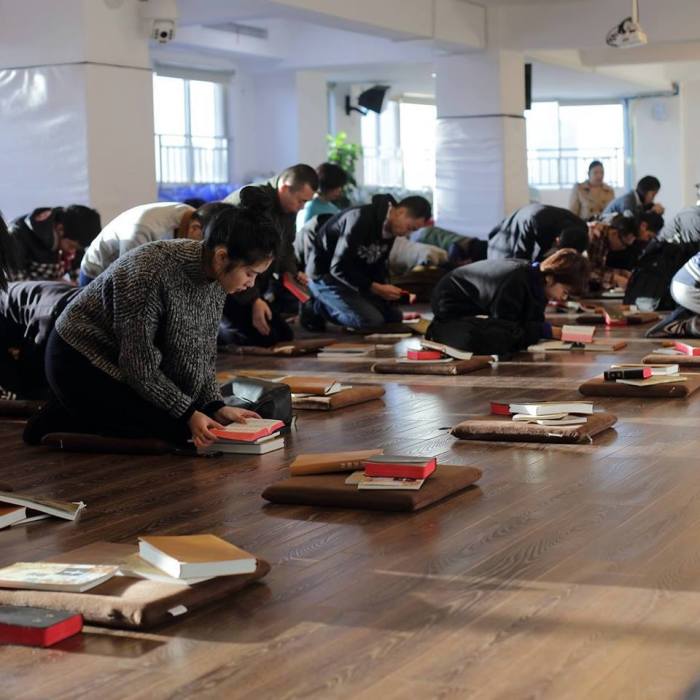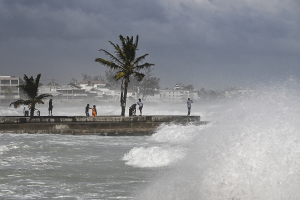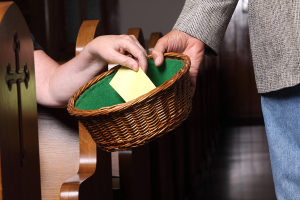China: Authorities raid church, confiscate Bibles, detain members

A church plant of the heavily-persecuted Early Rain Covenant Church was raided by authorities in China’s Taiyuan, Shanxi province, who then detained the pastor and six other members.
Persecution watchdog International Christian Concern reports that on Nov. 15, officials from the public security bureau, ethnic and religious affairs bureau, ministry of civil affairs, and police station raided Xuncheng Church during its morning Sunday service.
The public security commander confiscated the cell phone of the presider before demanding that brother Zhang Chenghao go with them.
After the service, the commander and the staff from the ethnic and religious affairs bureau questioned Pastor An Yankui’s qualifications, asking whether his credentials were approved by the state and whether their gathering was registered with the government.
Though they failed to provide an arrest warrant, authorities then took the pastor away. They then posted the disbandment notice on the house church’s door, prevented people from recording the incident, and confiscated the members’ cell phones. They also recorded everyone’s personal information and confiscated Bibles, hymnals and choir robes.
Police interrogated the Christians and attempted to “mislead them into disclosing unfavorable information about their church,” according to ICC. Authorities then transferred the believers to another facility. There, they were asked to change into prison uniforms and handcuffed in a detention room.
After several hours, the Christians were permitted to change back into their clothes and asked to each provide a statement. These believers were released around 9:30 p.m.
According to China Aid, Xuncheng Church was planted by Early Rain Covenant Church in Chengdu, one of China’s largest unregistered churches. An Yankui, one of the pastors of Xuncheng Church, graduated from the seminary founded by ERCC and is under the influence of reformed theology and ERCC Pastor Wang Yi, who was sentenced to nine years in prison for his ministry work.
Though authorities shuttered ERCC in 2018 and arrested their pastor and other leaders, church members have continued to face harassment.
Gina Goh, ICC’s regional manager for Southeast Asia, said that at a time when religion in China has to submit itself to the control of the Chinese Communist Party and President Xi Jinping, it is “no longer a surprise that a house church is seen as an enemy of the state and clamped down upon.”
“China’s blindness to its violation of religious freedom needs to be continuously exposed so that Beijing knows it cannot get away with performing these evil acts,” Goh said.
China’s crackdown on Christianity and other religions it sees as “threats” to the state are well documented.
In recent years, numerous reports have emerged of Chinese authorities replacing crosses with the CCP flag, and images of Jesus Christ with President Xi in addition to converting churches into buildings for political activities.
The CCP has also increasingly pressured church leaders to infuse their sermons with political ideology. Additionally, censors have begun removing the words “Christ” and “Jesus” from some publications, including on Chinese social media networks.
Earlier this month, authorities raided an underground Catholic community in Hebei province and detained two priests and at least a dozen seminarians and nuns whose whereabouts remain unknown.
According to a November report from the Pew Research Center, restrictions on religion in China have risen to a record level. Researchers found that China continues to have “the highest score on the Government Restrictions Index out of all 198 countries and territories in the study.”
China has also been labeled by the U.S. State Department as a “country of particular concern” for “continuing to engage in particularly severe violations of religious freedom.”
The country is ranked 27th on Open Door USA’s World Watch List of countries where it is most difficult to be a Christian.




























